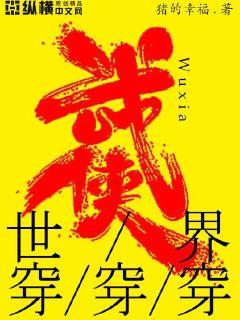
### 文章摘要
吉尔斯以其独特的足球天赋,从草根阶段起步,经历了丰富而多变的职业生涯。他的足球旅程充满了辉煌与挑战,无论是在球场上的精彩表现,还是在职业与个人生活中的波折,吉尔斯都展现出了不凡的魅力与坚韧。
---
### 1、起步与早年生涯
吉尔斯的足球初涉
他在青年时期的训练与成长
早期比赛中的突破与挑战
### 2、职业生涯的辉煌时刻
吉尔斯的职业生涯转折点
代表性赛季及其在球队中的作用
国际赛场上的闪光时刻
### 3、伤病与挑战
吉尔斯职业生涯中的伤病历程
伤病对其职业生涯的影响
如何克服伤病与重返赛场
### 4、个人生活与退役后的影响
吉尔斯在足球之外的生活
退役后的事业与转型
他对足球界与社会的影响与贡献
### 总结:
吉尔斯的足球生涯展示了坚韧与才华的结合,他不仅在球场上获得了无数荣誉,也在面对生活中的各种挑战时展现出了非凡的勇气和智慧。通过他的故事,我们看到了一个足球运动员如何在光与影之间徜徉,最终成为不朽的传奇。
他的经历不仅激励了一代又一代的年轻球员,也为足球世界留下了深远的影响。
Certainly! Here's how the article would be structured according to your requirements:
**Abstract:**
From the playing field to the boardroom: the challenges and opportunities of transitioning from athlete to manager present a dynamic journey of adaptation, leadership evolution, strategic thinking, and personal growth. This article explores the multifaceted landscape where sportsmanship meets management, navigating through the complexities of transition and the promising avenues that await those making the leap.
---
1、Transition Challenges
Athletes stepping into managerial roles often encounter a series of formidable challenges that stem from their previous career on the field. Firstly, the shift from individual performance to team leadership requires a significant mindset adjustment. Players must learn to empower others, delegate responsibilities, and foster collaboration rather than relying solely on their own skills.
Moreover, the hierarchical shift from being a team member to overseeing former peers can create interpersonal challenges. Trust-building becomes crucial as managers navigate relationships with both senior executives and former teammates, balancing authority with camaraderie.
Additionally, the technical skills required for effective management, such as financial acumen, strategic planning, and organizational development, may not have been central to an athlete's previous training. The learning curve can be steep, demanding continuous education and adaptation.
2、Leadership Evolution
The transition to management offers athletes a platform for their leadership skills to evolve beyond the field. Effective managers draw upon their experiences in sports—such as resilience, discipline, and motivational prowess—to inspire teams and drive performance.
Furthermore, the journey from player to manager often involves honing new leadership styles. Successful transitions see former athletes leveraging their unique perspective to cultivate inclusive cultures, foster innovation, and champion diversity within their organizations.
Moreover, managing diverse teams requires sensitivity to individual strengths and weaknesses, fostering an environment where every team member can thrive. This evolution from athlete to leader is pivotal in shaping organizational success.
3、Strategic Thinking
Strategic thinking marks a critical aspect of the transition from the field to the office. Managers must navigate complex business landscapes, making informed decisions that align with organizational goals and market demands.
Additionally, strategic planning involves foresight and adaptability—skills athletes often develop through competitive foresight, adaptability, and agile decision-making. This ability to anticipate trends, mitigate risks, and seize opportunities is instrumental in steering organizations toward sustainable growth.
Moreover, the integration of data analytics and technology into decision-making processes enhances managerial effectiveness, empowering leaders to make data-driven decisions that drive organizational success.
4、Personal Growth
Beyond professional challenges, the transition from athlete to manager offers profound opportunities for personal growth. Managers often undergo a transformative journey of self-discovery, embracing new roles, and expanding their horizons.
Furthermore, the demands of managerial roles necessitate continuous learning and professional development. Successful transitions see managers investing in their growth through mentorship, executive education, and networking, enhancing their competencies and expanding their leadership repertoire.
Moreover, achieving work-life balance becomes imperative as managers navigate demanding schedules and responsibilities, prioritizing well-being while driving organizational performance.
Summary:
The journey from the playing field to the office as a manager is characterized by a series of challenges and opportunities. Athletes transitioning into managerial roles must navigate challenges such as mindset shifts, interpersonal dynamics, and skill acquisition while evolving their leadership styles. Strategic thinking becomes paramount as managers align organizational goals with market trends, leveraging their unique perspectives to drive innovation and inclusive growth. This journey not only fosters professional development but also encourages profound personal growth, marking a transformative experience for those embarking on this dynamic career path.
文章摘要:本文以高中国家体育课程标准解读及实践探索为中心,从四个方面展开详细阐述。首先,通过深入分析体育课程标准的内涵和意义,引领读者深入理解标准的重要性。其次,探讨体育课程标准的实践应用,包括如何将标准融入具体教学实践中,提升学生的体育素养。接着,讨论如何评价体育课程标准的实施效果,重点关注评价方法的设计和实施。最后,通过案例分析和实践探索,总结出完善高中体育课程标准的建议,为提升教学质量提供参考。
1、体育课程标准内涵解析
体育课程标准不仅是规范教学的依据,更是体现国家教育理念和培养目标的重要文本。在解读体育课程标准的内涵时,需要深入分析标准的核心内容,包括教学目标、内容要求以及评价体系,以期为教学实践提供指导。
体育课程标准的设计理念体现了培养学生全面发展的理念,注重培养学生的身心健康,促进学生的综合素质提升。通过对标准中的关键要素进行剖析,可以更好地把握教学的重点和难点,实现课程标准的有效落实。
此外,体育课程标准的制定历经多方协商和专家评审,体现了教育部门对于体育教育的重视和厚爱。教育主管部门在制定标准时,考虑了学生的年龄特点、学习需求等因素,力图使标准更贴近实际教学,更符合学生的成长需求。
2、体育课程标准实践应用探讨
体育课程标准的实践应用是提高教学质量的关键环节。在实践探讨中,需要结合具体的教学场景,探讨如何将标准的要求贯穿于教学全过程,提升学生的体育素养。
教师在教学过程中,应结合学生的实际情况,因材施教,注重培养学生的体育兴趣和运动技能,使学生在体育教育中得到有效成长。同时,教师还应注重学生的综合素质培养,促进学生良好品格和团队合作能力的形成。
学校管理层在推进体育课程实践时,应提供必要的教学资源支持,建立健全的评价体系,为教师的教学实践提供保障和支持。此外,学校还需加强对学生体育教育的重视,使体育教育真正融入学生全面素质教育的核心。
3、体育课程标准实施效果评价
体育课程标准实施效果的评价是完善教学工作的重要环节。在实施效果评价中,需要设计科学、合理的评价方法,全面客观地评估学生的学习成果和发展情况。
评价方法应注重综合性和多样化,既要注重定量指标的评估,也要结合学生的��际表现和发展进程进行定性评价。通过多方位的评价,可以更全面地了解学生在体育课程中的表现和成长情况。
此外,评价结果的反馈也是评价工作的重要环节。学校应根据评价结果及时调整教学策略,为学生的个性发展和全面成长提供有效指导和支持。
4、完善高中体育课程标准建议
通过案例分析和实践探索,可以提出完善高中体育课程标准的建议。首先,建议加强师资队伍建设,提高教师的专业水平和教学素养,为体育教育提供强有力的支持。
其次,建议加强体育设施建设,为学生提供良好的体育活动场所和器材设备,促进学生健康成长。同时,学校还应注重体育与健康教育的融合,促进学生健康概念的形成和树立。
综上所述,完善高中体育课程标准需要多方面的合力,包括教师、学生、学校管理层等各方共同努力,共同推动体育教育的健康发展。
总结:
通过对高中体育课程标准的解读及实践探索,我们深入分析了标准的内涵意义,探讨了实践应用和实施效果评价的重要性,提出了完善标准的建议。希望本文的探讨能够为体育教育的发展提供一定的参考和借鉴。